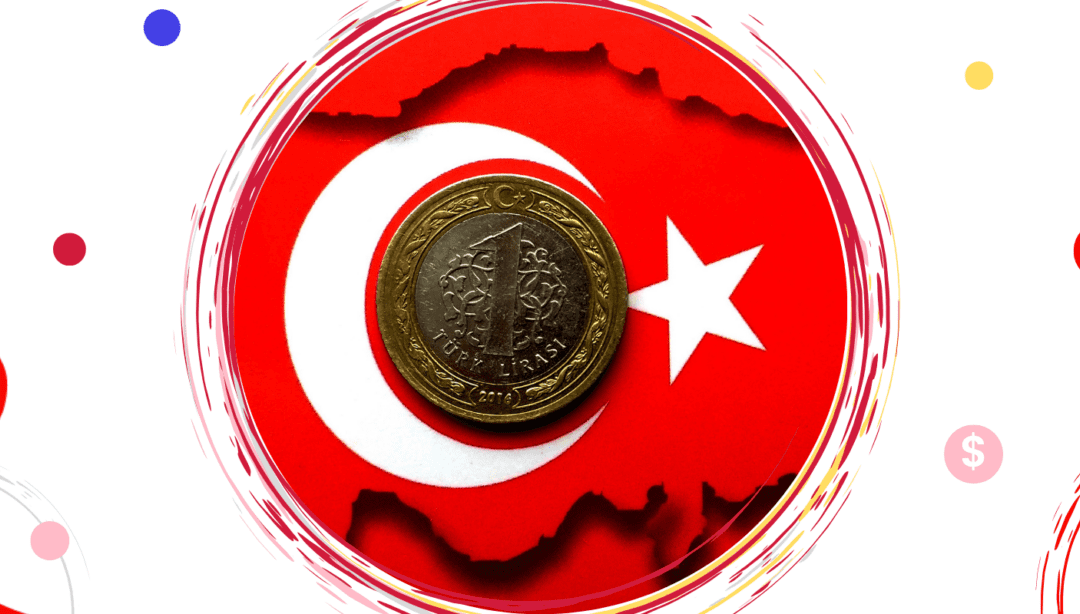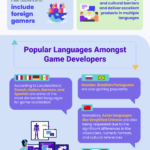As well as the EFIGS market, the MENA (Middle East North Africa) countries offer multiple game localization opportunities. If you want to take advantage of this highly diverse region, then starting with Turkish game localization might be the right step. And this is because Turkey is a mix of East and West, establishing itself as the center of video games in MENA and one of the most developed gaming markets in the region.
A few data about the MENA gaming market
When talking about MENA, we must admit that it is one of the fastest-growing gaming markets in the world. Globally, the gaming industry has revenues of $175.8 Billion and is projected to exceed $218 Billion by the end of 2024. With +4.8% Year-over-Year growth in 2021, the Middle East & North Africa market is expected to reach 6.3Bn by the end of 2021, accounting for 4% of the global total.
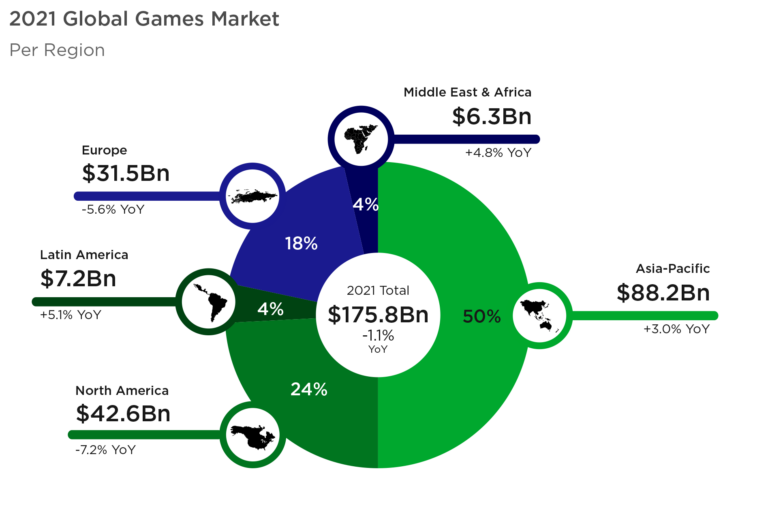
In those circumstances, the revenues of the Turkish digital gaming industry reached $880 million in 2020, while the gamer community grew from 32 million players in 2019 to 36 million last year.
This opens a valuable opportunity for international brands to expand in Turkey. And if this market attracted mostly Asian game developers in the previous years, they are now on the table of Western companies.
Players are open to effective localized games, but reaching this market also comes with rules. As in other countries (Korea, Germany, France, Italy, or LatAm), extending the gaming market in Turkey involves a profound understanding of the cultural, linguistic, and technical aspects required for localization in the Turkish language.
Effective Turkish game translation – know your audience
A short overview of the Turkish gaming market
- Turkey has a strong gaming community of 36 million players, who generated $88o million in revenue last year, while playing times increased by 30% since the beginning of the pandemic
- According to the Gaming in Turkey 2020 report, 79% of adults in Turkey play mobile games
- In 2020, there were 55 million social media users, with 37 million being on Facebook and 38 million on Instagram
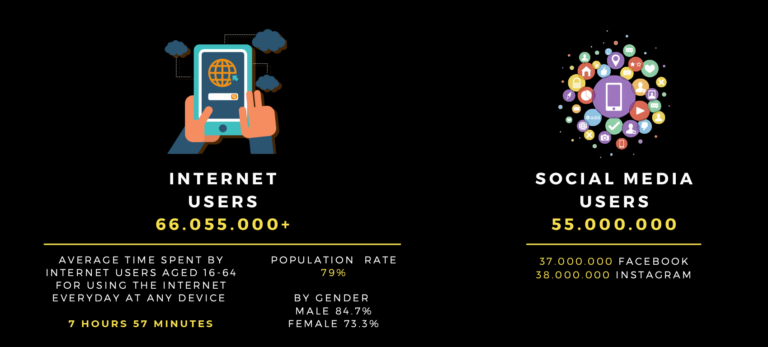
- of mobile players in Turkey, 50.2% are male, and 49.8% are female
- the average time spent by internet users aged between 16-64 using the internet is 7 hours 57 minutes daily
- 90% of the Turkish population has a Smartphone, while 86% have a computer
- Turkey’s gaming revenue shows a high interest in mobile and PC / Console games.
- In 2020, the number of active Turkish users on Steam exceeded 23 million.
- The Turkish language has a wide range of challenges specific to the gaming industry.
Turkish gaming audience at a glance
If we break down the age ranges of mobile gaming players, they look like this:
- players aged 16-24: 23.9%
- players: 25-34 years old: 28.5%
- players aged 35-44: – 25.3%
- players over the age of 45: 22.4%

In addition,
- mobile players spend daily more than 4 hours on their phones, regardless of the game
- 3% of the games published by Turkish publishers are in the paid category, while 87% contain ads and 28% of the games utilize in-app payments
- Even if Turkey made progress in 2020 compared to the previous years, 80% of the Turkish population doesn’t speak any other language but Turkish. According to EF English Proficiency Index 2021, Turkey ranks #70 in 112 countries globally and #34 in Europe.
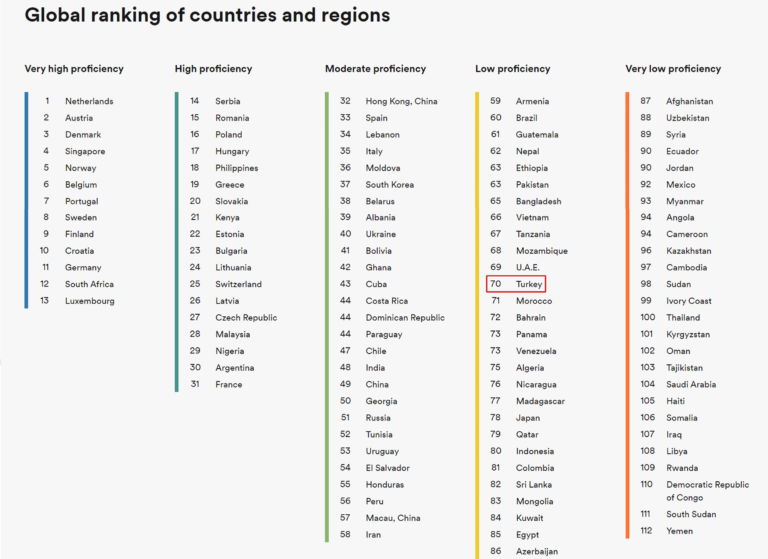
Most popular game genres on the Turkish market
According to Gaming In Turkey, the top five most popular game genres in Turkey are action-adventure games (49.2%), followed by puzzle games (46.2%), race games (45.7%), sports (45.6%), and strategy games (39.3%).
On the other side, the less popular games are simulation games (38.3%), card games (26.3%), and role-play games (21.1%).
Turkish players like mainly free-to-play games based on the “microtransaction” model. This means gamers play for free but have to pay to upgrade their accounts.
Competition is also essential for Turkish gamers. They love features like “player versus player,” but remember that the content and game rules should be accessible and easy to learn.
Why do you need to localize your game to conquer the Turkish market?
As mentioned before, 80% of people in Turkey don’t speak any foreign language. This means that Turkish game translation is a must if you want to conquer this market.
The good news is that compared to any other Arabic language, localization in Turkish is much easier. Unlike right-to-left Arabic, Turkish writing is from left to right. And this makes things less complicated from the perspective of UI/UX design.
However, you must know that Turkish is a Ural-Altaic language, so it has different grammar rules than English, German, Spanish, French, or Italian. For example, the Turkish language has four i’s: dotless and dotted. While in English, the uppercase for ‘i’ is I, in Turkish, it’s a dotted İ. On the other side, the Turkish language doesn’t use some Latin letters at all.
And even it uses the Latin alphabet, there are also some specific consonants and vowels: Ç, ç, Ğ, ğ, İ, i, I, ı, Ö, ö, Ş, ş, Ü, and ü. These characters sound unique in Turkish but could also cause letter corruption if the technical part of localization isn’t correct, using UTF-8 language code.
So, using the correct language code for Turkish game translation is critical.
Turkish game localization best practices
Video game localization is a complete, complex, and delicate process. You must find a balance between your original game’s voice and content and what your players want and connect with. Therefore, localization is more than just translating your game text word by word. You should also consider the visuals, cultural and historical elements, and specific customs and taboos.
Follow the recommendation below to have high-quality Turkish translations and localization for your game, whether mobile, console, or PC.
1. Keep in mind the text expansion
Turkish is an agglutinative language, meaning a noun plus an auxiliary verb form a wide variety of verbs. As a result, you might find that many commands specific to video games consist of two words instead of one.
For example,” Accept,” as a noun, is translated as “Kabul.” But you can use it as a verb by adding an auxiliary verb, and it becomes Kabul Et.
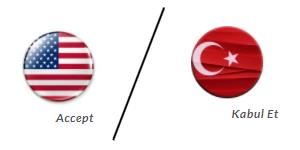
As a rule of thumb, you should let 22% – 33% for Text Expansion when translating from English to Turkish. This can be complicated and challenging, especially regarding menus, boxed texts, table cells, and boxes, and may cause issues with content that goes out from the provided space. In the worst-case scenario, it can determine the operating system’s incorrect running.
2. Take suffixes and regular expressions seriously for your Turkish game
You can work with placeholders or regular expressions to avoid confusing translatable content and coding errors. This way, you ensure that certain content is locked and can’t be changed during the localization process. For example, “give the sword to {player_name}.”
It appears to be simple, but Turkish is the language of suffixes, making the localization process even more complicated. This means that depending on the last syllable, the suffixes are conjugated as a back vowel or from a vowel. In addition, when translating in Turkish, blending letters is also a challenge you have to face. For example, “to Rodrigo” is “translated as Rodrigo’ya,” while the translation of ‘to Elly” will be “Elly’ye.” And the examples can go on.
3. Adjust formatting to the Turkish locale
If you created your game for the US market, it respects the American date and time format. But the Turkish formatting is different. So, it would be best if you change dates, time, currency, and decimal separators. So, when localizing for the Turkish market, you must consider them and change your content appropriately.
Some basic rules:
- The date format is in Turkish, DD.MM.YYYY. The 05.31.2021 (in English) will become 31.05.2021 in Turkish
- time format is HH:MM[:SS]; which means 19:00 for 07:00 pm and 08:00 for 08:00 am
- Numeric format: use a comma as a decimal separator and a period for grouping, and place the currency symbol after the number, not before. As example: 124.756,300₺ vs. $25,304.75
4. Don’t forget about the cultural and religious sensitivities
Turkey is a Muslim country; from this perspective, its values and customs differ from those of Western and Asian cultures. But if you get to know and understand Turkish culture, you will be able to figure out what games you could localize for this market to succeed. For example, authorities strictly regulated gambling and banned online casinos and table games since 2006. It is not always predictable which content will be rejected and banned.
In addition, like any other culture, Turkey comes with its sensibilities related to violence and religion. Ultraviolent games or those that “undermine” Islam are on unstable ground, primarily if they target a young audience. For example, since 2015, Turkey’s Ministry of Family and Social Policy has banned Minecraft because it “encourages children to resort to violence.
Another example: in 2016, Turkish authorities banned Pokémon Go for “insulting Islam” because players were trying to catch Pokémon in mosques.
These are just a few examples, but one thing is for sure: in Turkey, you never know what content will be rejected, banned, or accepted. That’s why you need the help of a professional translation and localization team.
5. Link your game to the local culture
Like in other languages, it would be better to replace the academic (standard) language with its street version. And this is because you should find a balance between your game voice and what the player is looking for and connecting with.
In Turkish, many international words have become part of the daily vocabulary. Therefore, if your game features some references to Asian martial arts, you don’t need to transform them into the Turkish martial art of Sayokan. Kungfu is kungfu, period.
Some games could sound more exciting and have more flair if you don’t localize them altogether, with the characters and the references remaining as in the original version.
Besides, you should know that any references to jokes related to specific TV-Shows, celebrities, or even current affairs, should have an appropriate and equally effective equivalent ready.
Check out our latest article for more information on best practices to localize marketing content and gain new users.
6. Translate tutorials and guidelines
The Turks don’t find many tutorials or explanations in Turkish – one reason could be the difficulty of the language. And if they don’t understand sophisticated games like World of Warcraft, they give up. On the other hand, League of Legends gained a lot of popularity after being localized in Turkish, currently having a Massive community in Turkey (over 13 million active accounts).
7. Perform QA localization
After completing the localization, allow native-speaking testers to PLAY the game to detect any inconsistencies and errors. Linguistic and grammatical corrections are usually an integral part of the services provided by translation agencies, but they only address language issues. But LQA is the stage where you find out if everything fits together to provide a great experience to your players. Therefore, don’t skip this stage.
Check out our 20 Questions To Ask (And Answer) article before Localizing Your Game for further information.
Wrapping up
Turkish game translation can be a massive opportunity. But it needs to be done effectively, preferably with a game localization strategy and a localization company. We from SandVox offer the localization services you need to become successful in the Turkish market.
Your target audience needs to connect with your game and its characters, the whole atmosphere, in a genuine way. This means you must keep in your mind and apply all the linguistic, cultural, and technical considerations to make Turkish gamers discover your game and engage with it.

